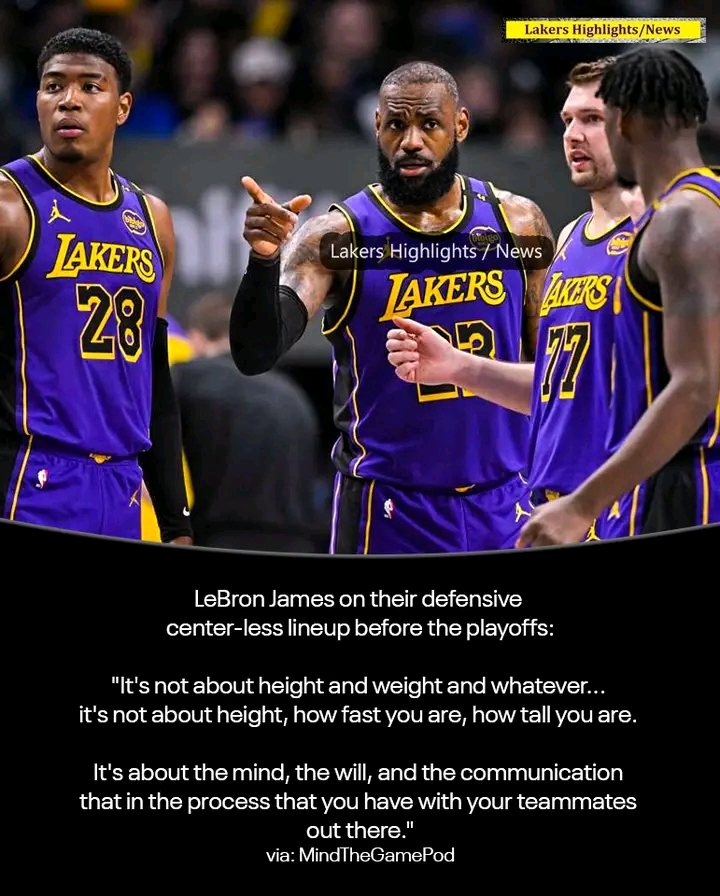In a recent clip circulating from the Mind the Game podcast, Los Angeles Lakers star LeBron James offered insightful commentary on the team’s former defensive strategy that omitted a traditional center. His reflections reveal not only the evolution of the team’s defensive identity but also underscore the importance of mental strength and communication in high-level basketball.
LeBron, known not just for his athleticism but for his basketball IQ, emphasized that success in the NBA isn’t merely a product of physical attributes such as height or speed. “It’s not about height and weight and whatever… it’s not about height, how fast you are, how tall you are,” James stated. Instead, he highlighted intangibles like willpower, communication, and mental resilience as key drivers in executing an effective defense.
This statement was especially relevant as the Lakers approached the playoffs with a center-less lineup—an unconventional move in a league where rim protection and interior defense are often dictated by dominant big men. However, according to LeBron, the mindset and synergy among teammates can compensate for the absence of a traditional center, at least temporarily.
Yet, times have changed. As the post makes clear, the Lakers’ priorities have now shifted, and a center is “definitely what they need.” This evolution signifies a return to a more traditional structure, perhaps in response to mismatches and defensive challenges faced in the latter stages of the season.
The transition speaks volumes about the fluid nature of strategy in professional sports. While small-ball lineups and versatility continue to dominate NBA trends, the Lakers appear to be recalibrating their roster to better balance size, strength, and skill.
In essence, LeBron’s words serve both as a reflection on past strategy and a reminder of the cerebral demands of championship basketball. It’s not just about who’s on the floor—but how they think, connect, and compete together.

